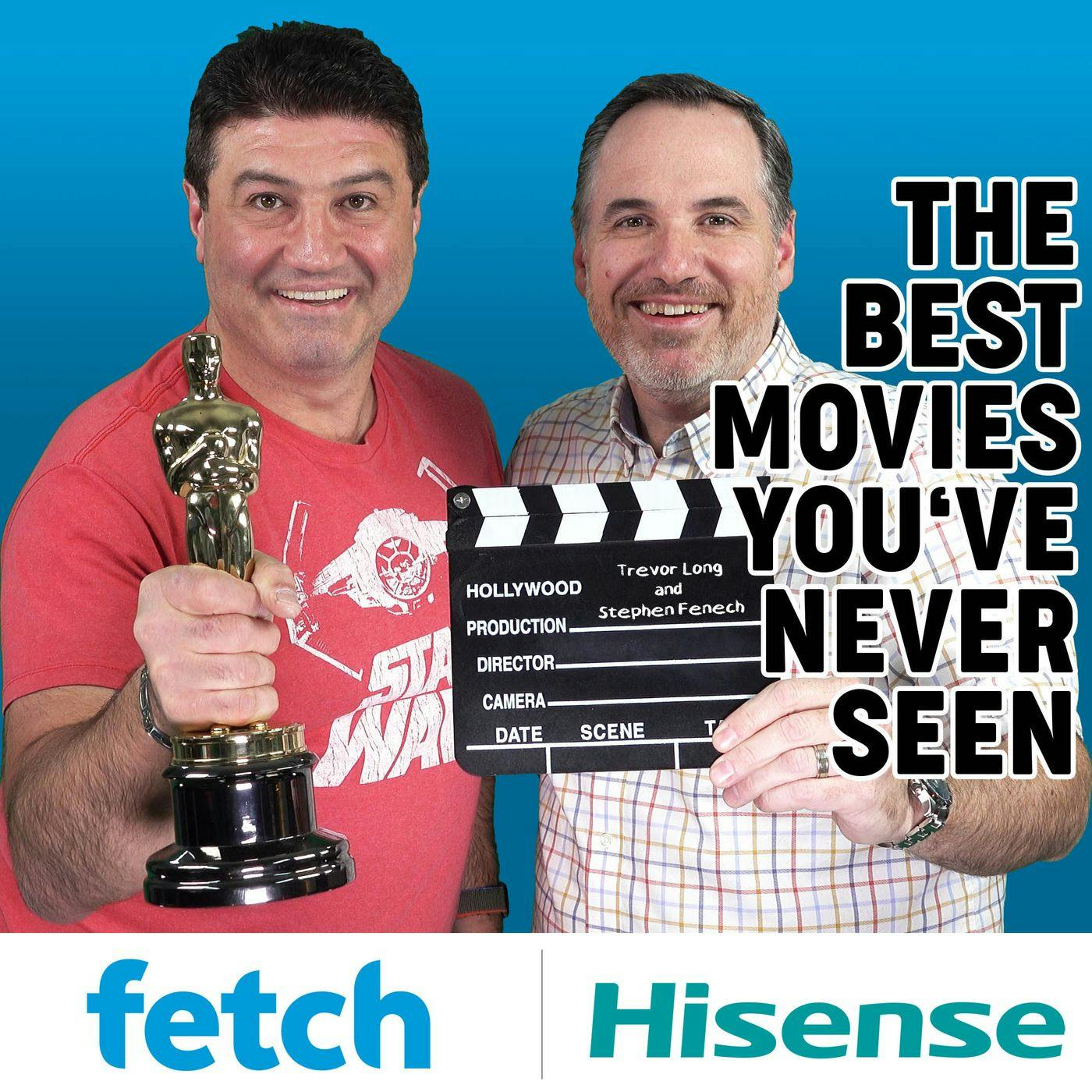.png)
The Late Bloomer Actor
Welcome to "The Late Bloomer Actor", a monthly podcast series hosted by Australian actor David John Clark.
Join David as he engages in discussions with those that have helped him on his journey as a late bloomer actor, where he shares personal stories, insights, and wisdom gained from his unique path as a late bloomer actor and the lessons he has learned, and continued to learn, from the many sources available in the acting world.
Each episode features conversations with actors and industry insiders that have crossed paths with David who generously offer their own experiences and lessons learned.
Discover practical advice, inspiration, and invaluable insights into the acting industry as David and his guests delve into a wide range of topics. From auditioning tips to navigating the complexities of the industry, honing acting skills, and cultivating mental resilience, every episode is packed with actionable takeaways to empower you on your own acting journey.
Whether you're a seasoned actor, an aspiring performer, or simply curious about the world of acting, "The Late Bloomer Actor" is here to support your growth and development. Tune in to gain clarity, confidence, and motivation as you pursue your dreams in the world of acting. Join us and let's embark on this transformative journey together!
The Late Bloomer Actor
Self-Sabotage and the Business of Acting with NY Agent Albert Bramante
Text The Late Bloomer Actor a Question or Comment.
In this episode of The Late Bloomer Actor, David speaks with New York talent agent Albert Bramante about his journey in the acting industry, the psychology behind self-sabotage in actors, and the importance of mindset and language in pursuing an acting career. They discuss the pressures actors face, strategies to overcome self-doubt, and the significance of building relationships within the industry. Albert shares insights from his book, 'Rise Above The Script,' emphasizing the need for persistence and a positive outlook in the competitive world of acting.
Takeaways
- Albert Bramante's journey from psychology to talent management.
- Self-sabotage in actors often stems from internal fears and external pressures.
- Actors face unique challenges in receiving feedback compared to other professions.
- The importance of mindset and language in defining oneself as an actor.
- Persistence is key in the acting industry; actors must keep pushing forward.
- Building relationships with agents and casting directors is crucial for success.
- Actors should view auditions as opportunities to perform rather than as tests.
- The concept of rejection in acting is often misunderstood; it's not personal.
- Having a long-term plan can help actors navigate their careers effectively.
- Late bloomers in acting can still find success at any age.
Check out 'Rise Above The Script' on Amazon.
Please consider supporting the show by becoming a paid subscriber (you can cancel at any time) by clicking here and you will have the opportunity to be a part of the live recordings prior to release.
Please follow on Facebook, Instagram, YouTube and Tik Tok.
And please Rate the show on IMDB.
This episode was recorded on RiversideFM - click the link to join and record.
And finally, I am a huge advocate for and user of WeAudition - an online community for self-taping and auditions. Sign up with the PROMO code: LATEBLOOMER for 25% of your ongoing membership.
David John Clark (00:00)
Hello everyone and welcome to another episode of The Late Bloomer Actor. Today we travel via the wonderful world of the internet to New York City. They say it is the city that never sleeps, but let's hope my next guest, a New York talent agent, finds the time to get enough of that. So please welcome to the show Mr. Albert Bramante. Welcome Albert.
Albert (00:19)
Thank you, David. I'm really happy to be here. Thank you for inviting me.
David John Clark (00:21)
Thank you.
And New York is probably the worst time zone for chatting across the world between Australia and the States because we're completely opposite.
Albert (00:31)
Yes. Yeah,
we're 14 hours behind you. So
David John Clark (00:36)
Yeah, so you've got, you're about,
what are you, 8pm? Yeah. And we're in the future. So I always like to say, hey, I've got the lotto numbers for you. I'll give you the lotto numbers as soon as we finish.
Albert (00:39)
It's about 8 p.m. Yeah, 8 p.m. New York time.
Yeah, or
you celebrate New Year's like 14 hours late before we do, you know, the New Year.
David John Clark (00:53)
I love it.
Firstly, Albert, thank you for coming on the show. It's a real pleasure to have someone of your background to chat with. You are an author and talent agent amongst others. Can you give us an insight into your background and what brought you to the world of acting and being a talent agent in the wonderful city of New York?
Albert (01:12)
Sure, well, I born and raised in New Jersey, which is right on the border of New York. And I started off always being interested in acting. I majored in psychology. I had an interest in psychology even in high school, but I also had an interest in the arts. So was in a drama club in high school. I took some acting and theater classes as electives during my undergraduate career. And I liked acting. didn't necessarily like...
want to be an actor, but I liked being around actors and like being around creative people. So I decided that I really wanted to work with actors. So I do did some creative stuff in New York City, you know, because New York City is like the capital of there's a lot of things happening in the entertainment industry, the film festivals. So I'd go to lot of film festivals. I'd volunteered some festivals like Tribeca a couple of times. And I really enjoyed the process of that and just being around
know, filmmakers, actors, producers, casting directors, I really enjoyed my time there. And I said, I really want to do something here with this. So I started supporting actors. I created like actor support groups where, you know, we sometimes would meet and, you know, talk and kind of just talk shop and, you know, the highs and the lows and where the auditions are. And then I found myself finding auditions for actors and I'm like,
began a natural transition. Why not do this as a job and make some money off of it? And so I started my first company in 2004 in pretty much working from home and then became a licensed talent agent in around early 2008 ish. And then, you know, since that time working ever since. And while in the middle of this, because I already had my master's in psychology, I said, you know, I'm not going to the full
gamut here and go for the PhD. So what I always wanted to do and I think it kind of like was a relief to my parents too a little bit, my family, that I was going for a PhD and not throwing them throwing them completely away. So I did that and it was a tough, know, but but very rewarding experience because I was juggling a few things. The agency full time.
David John Clark (03:13)
Wow.
Fair enough.
Albert (03:38)
I was also teaching, you know, that time full time and going for a PhD. I decided when it came time for my, to do my dissertation, which is a huge thing that PhD students have to do complete to, you know, earn that degree.
David John Clark (03:41)
Wow.
Hmm.
Albert (03:53)
I
decided to focus on a problem with actors. And my problem was why do actors self-sabotage?
David John Clark (04:02)
Yeah.
Albert (04:03)
And because I noticed that when I first started off as an agent, I was noticing a lot of actors were telling me, ⁓ verbally telling me in their words and language, how much they wanted to work, how much they really enjoyed, how much they wanted auditions, but yet their actions were telling me another story. They were coming up with excuses not to go on auditions, being late to auditions, sometimes blowing off auditions. And I couldn't figure this out because,
David John Clark (04:24)
Mm.
Albert (04:33)
there's so many other actors I know that would be really almost killing for those opportunities and yet these other actors are just nonchalantly blowing them off. So I wanted to know where the disconnect was because there was a major disconnect here.
David John Clark (04:42)
Hmm.
Yeah, that's really interesting.
Albert (04:50)
And so that got my psychology,
that got my psychology brain moving on, my psychology part of my brain, moving around saying, what's really going on here? And so when it came time for me to submit a proposal of dissertation that's why I proposed it. And they, they were really excited that this is going to be a great topic to study. So it was like the best of both worlds, psychology and acting, you know, as though I can, I can do both.
David John Clark (05:15)
Yes.
Albert (05:18)
Which is really exciting and then I received my PhD in You know ten years ago, and then I decided you know a couple of years went by and I said I want to turn this into a book
I think I worked hard on this dissertation. Let me turn this into a book. I finally in 2023 wrote the book, 2024 published it. So, you know.
David John Clark (05:38)
And that's
Rise Above The Script, I believe.
Albert (05:40)
Yeah, "Rise Above The Script: Confronting Self Doubt And Mastering Self Sabotage For Performing Artists."
David John Clark (05:46)
Wonderful. It's interesting because this season I'm focusing on the business side of acting and a lot of the discussions I've had with people already is how the two meld into each other, the craft of acting as well as the business acting. And we've talked about self-sabotage a lot. And off set before we started recording, you mentioned that you were listening to my last episode with Kym Jackson where you found yourself nodding in agreement and understanding throughout the episode because
we talked a lot about that. Can we continue on that? I'm really keen to hear what insights did you get from this acting? Why are actors doing that? I mean, self-sabotage, is it coming from within? Is it coming from external pressures? It's scary.
Albert (06:23)
Well.
It's a very complex and it's a combination of both factors, internal and external. In the internal aspect of it could be fear. There's a lot of, as an actor, you're baring your soul every time you go on an audition. So you're kind of just almost proving you're worth that. With any other job, it's like you interview one or two companies and then
you got hired and then for a couple of years and maybe even decades, you're set. Whereas when you work in the creative space or a freelance space, you have to prove yourself daily. It's like you've got to constantly interview and audition. And as actors, you know, the unfortunate reality is that you're going to get a lot more nos than you are going get yeses. Even the most talented actors are still going to get a lot more nos in ratio to the more yeses. So I think that takes a toll.
David John Clark (06:58)
Yes.
And the big difference there is, yeah, the big difference too, is when you're going for job interviews, like you said, you might do two or three or maybe even 10, but you eventually get the job. But nine times out of 10 or most times when you finish that interview, you get feedback about why you didn't get the job. They'll contact you and say, look, thank you very much, but we've gone with someone that's got a PhD ⁓ or someone that's had a bit more experience or you're lacking this or lacking that. Maybe if you go and get more experience here, we'll be able to look at you in the future. You get that feedback, but actors
Albert (07:23)
on the psyche.
Mm-hmm.
David John Clark (07:53)
continually, like you said, getting the nos but then they don't get that feedback. And I think that is the killer.
Albert (07:59)
Yes. And it's amazing how many actors will say, you know, they'll ask me, you know, did you get feedback or can you get feedback? And most of the time they're not going to give us feedback, you know, unless it's like you're in the second or third callback for a project. And then, you know, you're right at the line and it's between you and somebody else. Maybe that'll say, well, you know, this person may be too tall, you know, not as tall enough for, you know, I've gotten feedback.
You know, she wasn't rough looking enough for the role. Okay, she was a little too healthy for the role. Fine. You know that that gives me good feedback in the sense, but you're right, there is no feedback. And I think that also adds down. Plus, externally, a lot of actors get pressure from their families and loved ones significant others like, you know, oh, this is a pipe dream, you know, you should give it up. Or they'll go to like family dinners. And I'm like, Oh, so you're an actor. So tell me what you've been in.
David John Clark (08:32)
Yeah.
I hate that question. Exactly.
Albert (09:00)
You know, what am I going to see on TV? you are especially if they have an agent. Well, why isn't your
agent getting these A-list roles? You know, these were A-list roles. So I think they get a lot of pressure from families who do not understand the business, you know, which, you know, I can understand where they're coming from too. They don't understand the business. So I think that it's a combination of the external pressures of family, friends.
David John Clark (09:09)
Mm.
Albert (09:25)
And then of course paying bills, know, you pay rent and survive and health insurance and all that.
David John Clark (09:30)
Have a real
job if you've got a real job on the side, the pressures there.
Albert (09:33)
Yeah, most,
I would say 99.9 % of actors in the States have to almost have a survival job on the side, whether it's, some caterers, some do freelance work, some, will do temp work, here and there just to fill up to pay the bills. So there's a whole host of factors there. So I think a lot of times it's disillusionment. It's the fear of failure, you know, putting yourself out there.
But then what I also talk a lot about my book is there's a fear of success too, that plays a role into it. That affects not just actors, but anybody. And it's a subconscious fear. It's a deep fear that we're not completely aware of. No one really walks around saying I fear being successful. But the root cause of that very often is the fear of change, the fear of more responsibility.
David John Clark (10:19)
No.
Albert (10:27)
You know, let's say you land as an actor, you land that series regular, you land that Broadway or West End contract, you land that movie deal. Now, your role, your life is going to be different. You may be giving up most of your social life. That's one thing that, while it seems glamorous to be, I'm on a series or I'm in a, lead the movie or I'm carrying a show on Broadway.
They don't really tell you that there's gonna be 12 to 14 hour work days and that's on a good day. Plus, time away from your family. So relationships are gonna be threatened sometimes in successes. All of that kind of can create like the perfect storm for self-sabotage.
David John Clark (11:04)
Yes.
Yeah, fair enough.
Albert (11:12)
That I feel like is a major reason. And then I also talk a little bit about personality factors, especially in my book. One model that I use tremendously is a big five, the five factor model, which is the five traits of openness, conscientiousness, extroversion, agreeableness, and neuroticism. And when I did my study, my dissertation study, I measured this. I gave
all the actors in my study, this inventory to take to measure where they they scored in the trades. And then I asked them another survey about like, "Have you missed auditions?" Or, "Do you feel sometimes you're running into a brick wall?" Or, "Do you feel like things working against you?" Which is kind of like a, a sneaky way of measuring self sabotage. Because again, most actors who anybody who gives into self sabotage doesn't even realize they're doing it.
David John Clark (12:03)
I mean, yeah, the term is self-sabotage. You would think you would have some sort of, conscious, approach to it, wouldn't you? But it's not till after the fact that you look back and go, why did I not do that? Or why did I do that in that way that caused that to happen?
Albert (12:17)
Yeah, or why is this keep going wrong? And then when you sit there and maybe have a coach or a good friend who can tell you like it is, that will point out like, okay, there's a common denominator here. You know, either you're not preparing enough or you're very late to appointments, or maybe you're not traveling enough time for an advance. Why is this happening? And what I found in my personality part of it was,
there was a direct relationship between being high in neuroticism, which would mean like being very emotionally reactive, and low in conscientiousness, which is like discipline and focus. So if you were high in neuroticism and low in conscientiousness, that's gonna be a recipe for self-sabotaging behavior. That kept coming up so many times in my study, was that relationship.
And it makes sense because the more anxiety you have, you're more likely going to be susceptible to these fears and pressure from the external world. And the more likely you're going to be letting a guard down when it comes to doing what you need to do.
David John Clark (13:21)
Would you find that actors over time as they don't book the jobs and they get more ingrained into, I'm not making, I'm not making, I don't cut it, I'm not good enough, that becomes more and more of that self-sabotage comes out because it rolls on into a big ball, so to speak?
Albert (13:38)
Sure, the
more that you keep not getting the role, it starts to add up like, well, maybe I shouldn't be doing this. And there's a high turnover rate, especially in New York, like what I mean that a lot of people will graduate, they'll go to the conservatory, they'll get a BFA, they'll get an MFA, they'll spend 80 to $100,000, graduate maybe one or two years and then they're out of it.
David John Clark (14:00)
Mm.
Albert (14:06)
I remember I went to a showcase. There was a institution in New York that graduated 16 BFA actors. This was in 2014. And out of the 16 that graduated, I wound up connecting with one rep, signed one of them, and we're having coffee. This was a few years after the showcase. And we're having coffee, and I said to hire a classmate too, and she's like,
Well, there were 16 of us, 14 quit. And then are now working, working in a corporate world or teaching or doing something outside, not acting. And I'm like, okay, this, is interesting and alarming. So I think this is why conversations need to be happening now, whether, you know, whether there's poor preparation in the education,
David John Clark (14:38)
Wow.
Well.
Albert (14:59)
or maybe they weren't cut out for the field. I don't mean like talent wise, mean, personality wise, and I think. So I think that there's a whole lot of factors in I'm still learning, that this is a concern is a high turnover rate. You know, even after a while, some
David John Clark (15:12)
Well, it's a hard
industry though, isn't it? it's naturally, mean, if you can't feed yourself, you've got to go somewhere else.
Albert (15:15)
Yeah.
Yeah. And over the years I can tell you dozens of actors who had to send an email saying, I need to leave the roster because I'm leaving the business or I have to step away. Have to, focus on my health or I focus on my family. Cause not only that, if you have a family, a spouse, children, it's not an easy, profession. I don't kind of know what the,
answer than having a plan before you go into this is important, I think, I feel. And this is what I feel.
David John Clark (15:48)
Well, that's interesting.
Yeah, sorry, I didn't mean to cut you there be two different? So I'm looking at my position. So I'm a late bloomer actor. So I'm in a different spot. I've got a full-time job. I'm approaching retirement. I'm going to have a pension that will pay me and that sort of stuff. So I'm getting my experience. I can't go and do the drama school or anything like that. But on the other aspect, my son is 19 years of age. He's in his second year of university for drama.
So he's at the other end. So he's going to be one, like one of these actors that you talk about with the showcase. So what on those two different extremes, what is the plan that you can put into place? So this self-sabotage doesn't happen so that you can stay in the industry.
Albert (16:29)
Well, I think the main thing for anybody is to stay connected to the reason why you want to do this. And most actors that I've expanded will say they want to tell a story. They like being creative. They like getting on stage. So I think staying committed to that. Why do you like what you're doing? I also recommend how you approach it too.
David John Clark (16:37)
Nice.
Albert (16:56)
Like for your son, would say you have to have a plan, have a 10 year or 20 year plan, like be realistic that this is not going to be overnight. Like you're not going to just say, here I have my degree and now, hire me Broadway or hire me, Netflix. It's not going to happen right away like that. Now, sometimes it can, there are rare instances where someone's in the right space and the right time with the right connections and it can happen.
David John Clark (17:04)
this.
Hmm.
Of course.
Albert (17:20)
But that's rare, very rare. So the important thing is have a 10 or 20 year plan. And I think when you have that focus, when you're like, this is really what you want to do, nothing can get in your way. And even for the late, you know, the late bloomer, because I work with a lot, from the child actors to even actors that are in their eighties.
David John Clark (17:24)
Hmm.
Albert (17:42)
I think it's how you approach it and how serious you take it. Yes, I think it's important to treat this as a business, but also at the same time, try to take this as a business, but also not to it too seriously too. Like have an outside life, have interests, have other things that you're doing. Some of my clients are into activism. Some of my clients are...
David John Clark (17:58)
Love it.
Albert (18:06)
yoga instructors and my clients are realtors on the side. Some of my clients, they do catering on the side or whatever it is that they teach. I think having some outside interest and not be so consumed like 24 seven, what is my next audition? Why am I not booking? Also, I talk about this in my book and I everywhere I go.
The language that you use to describe yourself is extremely important. This may sound superficial and simple, but it's not. So one of the things I often tell actors is when you describe yourself to anybody, don't ever use the word I'm an aspiring actor or I'm a starving artist.
David John Clark (18:33)
Interesting.
Haha, And I've heard both of those plenty of times. Wow. ⁓
Albert (18:52)
I hear that all the time. I even got
a lot of submissions as an agent, you know, where it's like, hi, I'm so-and-so, I'm an aspiring actor. I'm like, no, you're not. Because if you have one credit, or if you got a degree, you're a professional actor, you're a working actor. So that is one thing, too, I think, that we can start doing. I'm a professional working actor.
David John Clark (19:17)
You're supposed to get to sell yourself, don't
you? Imagine a doctor coming, hi, I'm an aspiring doctor. You're not gonna get the job. ⁓
Albert (19:23)
Well, you know,
or like, you know, if I come in and say, hi, I'm, I'm Dr. Ramonti. I'm a, you know, I'm a struggling agent. Please, you know, let me sign you. You know, most actors are going to say, no, I don't, I'm out of here. Because it's not just even for that. It's your mind, you're telling yourself to A, it's going to be hard. And you kind of telling yourself you're not there yet. So that's going to impact your performance on auditions. It's going to impact your
performance at everywhere you go. So watch the language it used to yourself and outwardly too So that's that's a that's a big thing, too. I think the the one working actor that is in New York that works a lot in different films, he's one of those type of actors that you may not know his name, but you'll see his face if you watch on TV. ⁓
And one of things he says, which really rings true, which is really a good piece of advice, he doesn't look at auditions as auditions. He looks at it as an opportunity to work. I have two minutes to be a character. I have two minutes to work. I am performing now for two minutes. I get to do what I love for two minutes. And then I let it go when it's over. And I've always, you know, I never thought of it like that, but I've always told my clients to like,
David John Clark (20:24)
I've heard that.
Albert (20:41)
when an audition is over, let it go. You know, now everything of course is self-tape because of, you know, COVID and the pandemic, but even when they were, in person, when you went to our office to audition, as soon as that audition was over and you walked out of the office, let it go. It's over. Move on. You're focused to then be, okay, this is great. Next. What's my next?
David John Clark (20:58)
Move on.
Albert (21:06)
Where can I get my next audition? If you're doing with a mindset of I'm having fun, I'm performing for two minutes, when I'm doing that self tape, or if I'm going in that office to audition, I'm having fun, I'm showing what I can do for two minutes. A, you're taking a lot of pressure off yourself, getting out of your head, which I can...
almost guess with 100 % certainty that you're going to get much better performance. And that might even increase your booking ratio.
David John Clark (21:39)
And we all want that. ⁓
Albert (21:40)
And we all want that.
So I think perspective is extremely important. And this goes for actors, think, whether you're late boomer or early, the perspective that you have is important.
David John Clark (21:52)
I love that. It's interesting, isn't it? Because we need to sell ourselves and then yet we walk out and then we undersell ourselves to family and friends and in the room. I've always been told walk into an audition room like you've got somewhere to go, like you've got another appointment afterwards, but keep professional. Good morning, good afternoon, deliver you two minutes and then say thank you for your time and walk out.
Albert (22:02)
Yeah.
Yes.
Yeah.
And walk out, don't hang around, don't talk about your day, just go in and out. I think when you treat it like that, it just adds an era of professionalism and it really sells yourself as a professional because that's the main thing you really want. Because part of it being a successful actor is, yes, of course we talk about booking work, but it's also about being called back
by the same casting offices. I'm sure this is in Australia, but also in New York, the casting community is relatively small. So, very often, multiple casting, know, the same cast and director is gonna work on multiple projects. So you wanna get on their fan list, or their list first, because that is gonna be important. I mean, yes, getting the job is great. I get my commission, of course, but...
David John Clark (22:55)
Yes.
Albert (23:09)
at the same time, it's about building those relationships. That's the most important thing, building those long-term relationships and long-term collaboration. That's where professionalism comes in. And don't sell yourself short. Another word that I think that we should all get out of our vocabularies, I'm just. Oh, you were in the film. Yeah, I just had one line. No, you were in the film.
Or, yeah, I'm just a, you know, so you're an actor? Yeah, I'm just a, you know, a bit part here. No, you're an actor. So I think again, those little mindset shifts. I even talk about this, you know, anywhere I go is, these mindset shifts: Obviously, they may not make you an A-lister overnight, but at the same time, they're going to get you out of your head.
And I guarantee you that when you're out of your head and you're mentally on top of your game as an actor or as a performer or any type of profession where you have put yourself out there, I guarantee those auditions are going to be lot stronger.
David John Clark (24:17)
Would you call these sort of habits, non-negotiables, this is what you need to do to make it work?
Albert (24:24)
I would say
that, I would say that, yes. Another thing, a misconception that I really hope comes out of this profession is the word rejection. I hear this a lot. Some people say, I'm tired of rejection, or some people come up to me saying, I always wanted to be an actor, but I don't like the rejection. And I think, and I'm gonna go on a limb here.
There's no such thing as rejection.
It's not personal. You're just not right for a role. There's only one role that has to be offered and thousands of people are applying for it sometimes. One person has to get it. Maybe 20 audition for it, one has to get it. Your services are not needed today. It's not rejection. It's not rejection. It's not personal. And I think that is when you
David John Clark (25:10)
Yeah, and that's what we need to look at.
Albert (25:18)
stop taking it personally, think that's going to add to that tenacity of staying focused. Because a no, you know, it simply means not right now. And I've had casting directors that were like, telling me on the phone, we're so we're heartbroken, your client can get the job almost, but they want with somebody else. So it's, not rejection. It's not. They're not telling you, no, personally, it's not like we don't like you. It's just
David John Clark (25:36)
Yeah, I've heard that a lot.
Albert (25:45)
You weren't right for this role. We went in another direction. At a lot of times it has nothing to do with your performance. You could give a very dynamite audition and still not get the role.
David John Clark (26:01)
Yes.
Albert (26:03)
Because either you were an inch too tall or, the other person had the eye color, the way that the person delivered the line was more of what they were looking for. You don't know that, that's out of your control. That's why you should also let it go when it's over.
David John Clark (26:16)
Yeah, I heard a story once here in Adelaide, a young girl went through, I think she had like four callbacks for this major role and she was fantastic and they loved her and it all boiled down to that they'd already made the choice of who was playing her mother and her mother's eye colour was so contrastingly different to hers. They just couldn't, they needed to keep the actress in that was playing the mother and they just said, sorry, we just can't, we had to go with the other actress with eye colour. So it was eye colour, that was it.
How's that for rejection? And you take that on board thinking, well, you have to move on, don't you?
Albert (26:43)
Yeah?
Yeah, well, I mean, can't change your eye color, you know, and, and that's not you. I would say to that actress, I would be celebrating because you made the four callbacks. You know, you're on the shortlist. That's an amazing thing. That's an amazing thing to accomplish. So well, well done. that's what I would. Yeah.
David John Clark (26:51)
No. ⁓
Mmm.
Definitely. Yeah. And a lot of people say that, yeah, the callback
is, is that they've asked you to come in because you've got what they want. You've got to celebrate that. And I, tell a lot of actors, I, I have a spreadsheet where I record all my auditions. So I've got a record of it, but so you can look at it and see that the business is working. You are selling.
Albert (27:27)
100 % it's whatever you're doing is working. Even if you don't get a specific callback for that role, but if that same casting director calls you back again and again and again, to the point where they even know you by name, by the time you walk into that room and They're greeting you, you know, that's an amazing thing! You've already won and that should be celebrated.
David John Clark (27:51)
Love it. I love it. Can I ask you a question as an agent? Obviously you would receive probably everyday calls from actors to say, hey, can you represent me? What's your suggestion to actors about finding their first agent or moving up from a current agent to that next level? What do you think they need to do and how do they sell that?
Albert (28:12)
Sure. The main thing is you have to separate yourself from everyone, because yes, I am getting 100 to 150 on average a week of submissions. That's a lot. Keep in mind that I'm I don't have time to meet every of these 150. I would never have enough time in a day. So keep in mind, I might only meet,
David John Clark (28:25)
Wow.
Of course.
Albert (28:39)
one or two of them out of that whole amount. So I think the main thing is persistence. And I would also say there's a lot of work you can do on your own first. Without an agent, do student films, do community theater, do independent films, get together with some of your acting friends and put on a put on a show, or shoot something. Nowadays with cell phones you have with the iPhones, you can edit, shoot and edit stuff and make
David John Clark (28:52)
Okay.
Albert (29:08)
good quality films, as long as you have someone who knows a little bit what they're doing, you have someone who is a decent writer, and the part that you're putting yourself in is right for you, on-brand for you, do that, create stuff, and just keep building your resume. And let's say you do a round where you send 20 agents, and nobody selects you the first time, okay? So.
What I would do is I would follow up every two or three months with anybody you send your info to. Say, Hey, this is what I've been up to. I've been doing A, B and C. I got a callback for this. I've, booked this role or I booked that role and I'm in the show. And just keep being persistent over time. And then, in another year or two,
do another submission a round of submissions again, because now your resume may be a lot stronger and just keep that up. And when you do land that representation, the one thing that is important to understand that the work doesn't stop. As an actor, you have to still work very, very hard. And I tell my clients this all the time, especially when they first sign with me, I'm not going to be responsible full time for your career.
I'm gonna help you, but you're gonna help me out too. It's a partnership. So I expect you to be networking. expect you to be taking, know, doing what you need to do, you know, working on your own stuff, building up your resume, keeping yourself in classes and coaching. And just keep building that part of your resume up because it's like you're helping me help me, you know, so it's like, I'm gonna help, I wanna help you, but you have to also help me be able to do that.
It's like you're helping me help you. I think that the important thing is to keep active. And then when you want to level up, I would say the one thing I often find, especially not just with my, my agency, but with other people, with agents, there's that misconception that I should be auditioning every week and that's not going to happen. So I think there's sometimes the notion of grass is greener on the other side, myth or fallacy.
David John Clark (30:54)
Hmm.
Albert (31:18)
So I would say really work with your agent now. Do the best you can. If you're not getting auditions, have a meeting every six months and say, what can I talk to your agent? What can I do? Do I need new headshots? Do need new headshots? Do I need to better demo reel together? And just work with that because a lot of times people are like, well, I just need a new agent or I need to move up the
David John Clark (31:35)
Mmm.
Albert (31:45)
big tier, top tier agencies, which that's a myth.
David John Clark (31:50)
Well, they're big tier agencies for a reason because they've got big tier actors.
Albert (31:54)
Yeah.
Yeah, and it's easy. I've had clients who came to me after they were assigned with a top tier agency and they didn't get one, they maybe got one audition in a year. ⁓ Yeah, they were not as important as their A-list talent, their name talent. So I think the one thing I would often tell actors who are looking to change agents,
David John Clark (32:10)
smaller fish again yeah
Albert (32:24)
try to work as much as you can with that one agent. And again, sometimes it doesn't work out fine, but do it amicably. That's a big thing too. Professionalism is really a key here.
David John Clark (32:38)
Definitely. I moved from my agent here in Adelaide, which is a regional city of Australia. So obviously you have them in America as well. And then I reached out to agents in Sydney because I thought I was at that level ready to level up and move. I had that movement into the bigger market, so to speak. that, and I did that professionally, my agents completely understood it and they knew that that would come eventually. So that was fantastic. But then there's lots of people who...
Albert (32:58)
Mm-hmm.
Yeah.
David John Clark (33:06)
do that, what you say, they think the grass is greener on the other side and they burn bridges, so to speak, and it doesn't help because this industry talks, doesn't it?
Albert (33:13)
No,
We do talk and we're friends, most agents. That's one thing. Again, if you're gonna be professional enough and say, ok I need to move on, we've been signed for a couple of years, I wanna change, that's fine. But if you just abruptly leave, that's a red flag for most agents is when I see somebody who has, that went through three or four agents already, like, okay.
What's happening here?
David John Clark (33:44)
Yeah, and I guess it takes time to build up those relationships as well as not just the relationship you're having with your agent and the relationship you're having with casting directors, but other people see that relationship. So they want to see, ⁓ David's been with this agent for two years. He's done some strong work. We've seen him in this. So they've got to, we love working with both of them and that enhances the whole career itself as well, doesn't it?
Albert (34:07)
Of course,
and sometimes they want to just see growth. I can tell you so many stories where I would pitch an actor to a casting director for, sometimes a year, year and a half. And then finally they wind up getting called in maybe, you know, 15 months later and then finally booking the role. So it's like, it happens. It just takes time. That's why I like the standard contract at least in the States is one year with an agent.
At least! And I feel like that's like a bare minimum. A year is not a long time, but it's a bare minimum because it may take us, you know, six to eight months to get traction. It may take that full year to get that traction at first. And, I think that all impatient thing of like that grass is greener on the other side of the next shiny object is like, well.
David John Clark (34:33)
Okay.
Albert (34:55)
Okay, or especially if see that they're, you know, because a lot of times I'll hear actors say, well, my friend is going out for this, why am I not going out for it? And, you know, then of course, when you break it down, you find out that a friend is a different type than they are, or the friend has a ton more experience than they do on their resume. So there's a whole host of factors there too.
David John Clark (35:14)
Bye. ⁓
Can I ask you some questions with melding the craft and the career together? You likely you discussed this in your book and you do it as an agent as well. How do you see the craft of acting and the business side of acting working together or working against each other in an actor's journey?
Albert (35:37)
I think they work more for each other than against, I think. ⁓
David John Clark (35:41)
I've been hearing that, that's
the common theme that comes out.
Albert (35:45)
Yeah, often tell actors, it wouldn't be a bad idea for an actor to take some business classes, I think. Because you are the CEO of your company, of you. So I think handling that as a business, A, it takes that personal factor out of it. So when you hear the word no, it's not you, it's business. It's not you. And part of that having a business sense is knowing your type.
David John Clark (35:52)
Interesting.
Hmm.
Albert (36:11)
knowing your brand, knowing what roles you are right for and knowing the roles you're not right for because a lot of actors I find sometimes don't even know themselves don't know their type and don't know their roles.
David John Clark (36:23)
How do you find that out? How do you work that out? Do you have an easy way to tell someone how to do that? Cause that's such a tough area.
Albert (36:28)
Well, I would say for,
it is tough. would say, you know, ask people to describe you that are not your family or loved ones. So like, when you're taking acting classes, when you're auditioning even for like the student films, what roles are you getting called in for? What roles are you actually booking?
Start taking stock of that. That's one way to know your type. But just even being honest, because sometimes I've seen actors, and I fear a lot of times the frustration with casting directors, a lot of actors will send themselves in for the wrong types of roles that don't match their specs. And that's frustrating.
David John Clark (37:08)
And that enhances that whole role balling of not getting the role and making yourself feel bad yourself, then you don't start to look at why you're not getting it. You just, you end up confused.
Albert (37:17)
Yeah, you may just be submitting even for the wrong
types of roles.
David John Clark (37:22)
It's tough, isn't it? It's tough. It's funny because so many people say, I'd never want to be an agent. That's too much hard work. I wouldn't want to be a casting director because that's so hard. But then I hear from agents and casting directors who say, I could never be an actor.
Albert (37:24)
Yes.
Yeah, no, that's true for me. I could never do you know, I would never be an actor. You know, I thought about it, you know, like that was younger. I'm like, no. When I tell people were like even who aspiring to or when I'm studying to become an agent or a casting director, it is a tough position because it's tougher from my end to because
I don't make money unless my clients make money. So I only make money off of commissions. So there's no salary. If my client's don't book, I don't make money for that month. Even casting directors too, they have it tough too because they're auditioning for producers, for network to get projects and they can lose jobs.
David John Clark (38:07)
Yes.
Go to the side.
Albert (38:26)
We're not really that much more powerful than you. It may seem like sometimes we are, some actors may be intimidated by casting directors or intimidated by agents. We're just, we're struggling the same way you are. And we want you to succeed. You know, I want my actors to succeed. You know, I want to meet the next, every time I meet an actor, I'm hoping that they're going to be my next big success story.
And same thing with casting director. Every time an actor walks into a room or they look at the self tape, they're wanting to see the best thing. They want to be able to have a job of casting that actor. So I think just knowing that you're on your side is industry, people.
David John Clark (39:03)
Yeah
Yes, definitely.
I spoke to Angela and Louise Heesom here in South Australia, our top casting directors for the state of South Australia. And I asked them an opening question because it was a heavy topic in social media at the time about casting directors being seen as gatekeepers and that they were the controller to the door to your future, et cetera, et cetera, which I
prescribe isn't the case, but this had been talked about and it broke Louise's ⁓ heart because she hadn't actually heard this term before. The thought that people were thinking that absolutely, she was visibly shocked in the recording. I started panicking, going, no, I don't mean anything by it. it's interesting because they are not, they are part of the journey. They, like you said, they are there to promote you and they want you to get that work. And we need to realise that, don't we?
Albert (39:30)
No.
Yes.
Of course. I've
even had casting directors who say, look, the actors we're on your side. We want you to succeed.
David John Clark (40:03)
And it's, it's your whole team, isn't it? And it's coming back to that business side of things. It's a team that works with you. And a lot of people talk about networking and I hate the word networking because I come from a public service environment where networking is just jobs for the boys, but in a creative context, networking is just about the relationships, about developing relationships and friendships.
Albert (40:05)
Yes.
Yeah, it's about building relationships.
And, you know, there's plenty of instances where, you know, actors, agents, casting directors, all like develop friendships with one another. Some of my clients are really good friends with some casting directors, even big time casting directors in New York. And I'm talking personal friends, where they'll go out sometimes for dinner, you know, or for coffee. And just like that, that type of friendship.
So I think that's the important thing is to treat everybody that, you know, this is a relationship.
David John Clark (40:49)
Definitely.
I love it. love it. And as we wind up, I just wanted to ask, your book is called Rise Above the Script. What does that title mean to you and what do you think it means to actors? What mindset shifts are you hoping actors take away from it?
Albert (41:07)
Well, yeah,
when I say script, don't necessarily mean the actual script auditioning for in a movie. I'm talking about the script in your mind, transcending that self-doubt, transcending that script of negativity, transcending that. That's why I title it Rise Above.
David John Clark (41:18)
it.
love it. I love it. And in the spirit of my podcast, being the late bloomer actor, what would you say to someone who feels like they missed their shot? Is there still space to thrive later in life in this business?
Albert (41:45)
That's the biggest misconception, I think. A lot of people feel that, like, oh, if you haven't been an A-lister by 30, it's over. And that may have been true, maybe in the 80s and 60s, 70s, and 80s. But there's never a time. You can always do new things. I have successful clients that are working all the time, and they're in their 70s and 80s, and they just started, you know, maybe 10, 20 years ago, you 15 years ago.
So if you want to do this, do it. do understand it's going to be hard work. The reality is that you are going to be competing with some people that are really more established. And that can sometimes be a bit of a handicap. But I still think if you're doing this to have fun, go for it.
David John Clark (42:23)
course. ⁓
Awesome. That's wonderful. Thank you very much. Is there anything that you would like to say to actors around the world from an agent's perspective that you could give to them right now to say to propel their career forward?
Albert (42:49)
You know, I would say, you know, the main thing is be extremely persistent, be a go-getter and don't listen to the voices in your head. Don't overthink things. Get out of your head when you're performing and have fun doing this. This is supposed to be fun too.
David John Clark (43:08)
And that's why we all get into it, isn't it? For the fun. The business aspect is there and we've got to do it, but you can make that fun as well. But don't put more emphasis on it or less emphasis on it. It's all part of the whole picture, isn't it?
Albert (43:11)
Yes.
100 % and that's the main thing is having fun and just enjoying the process and don't be so much attached to the outcome and I think that's another mistake actors make is I need this role, I need this role, I need this role, I need this role. I need to book, I need to book and rather than saying look I'm gonna have fun if I get it great if not I had fun doing this
David John Clark (43:45)
Fantastic, I love that. And so many people, they submit an audition thinking that I don't really want this job for whatever reason or I'm not going to get it because it's not mine. So they just half-heartedly almost do it. And that's the role they book and then their career changes. It's funny.
Albert (43:56)
Yeah.
Yeah, I
can tell a quick story. When I first started I had an actress audition for a commercial and she called me like maybe 15 minutes after she walked out of audition, almost devastated, you know, at the verge of tears. I think I just, messed this up. The casting director doesn't like me, I messed this up. And I was like, okay, well, let me see what happens. And the next day she booked the job.
And you don't know, sometimes you could get a poker face, you know, not when I say poker face, it's a serious face that may not make eye contact with you. But that, you know, that shouldn't be because if you're focused on performing, who cares what what that eye contact you get, you know, getting in that room, just perform and do your best and walk out and if you get the role, great. If not, you had fun doing it.
David John Clark (44:48)
I love it. Awesome. Thank you very much, Albert. It's been an absolute pleasure to speak to someone all the way over in New York. It's been a pleasure having you on the show. I will put in the show notes, links to your to your books so people can have a look at that. It sounds like a wonderful read. I'll add it to my vast collection, which I normally have behind me, but because I'm selling my house and moving, I've got no access to any of my books at the moment. So I'm doing it tough. So thank you very much. It's been a pleasure.
Albert (44:51)
Thank you, David.
Well, thank
you. Thank you for inviting me. Have a good night.
David John Clark (45:15)
Cheers.
Podcasts we love
Check out these other fine podcasts recommended by us, not an algorithm.
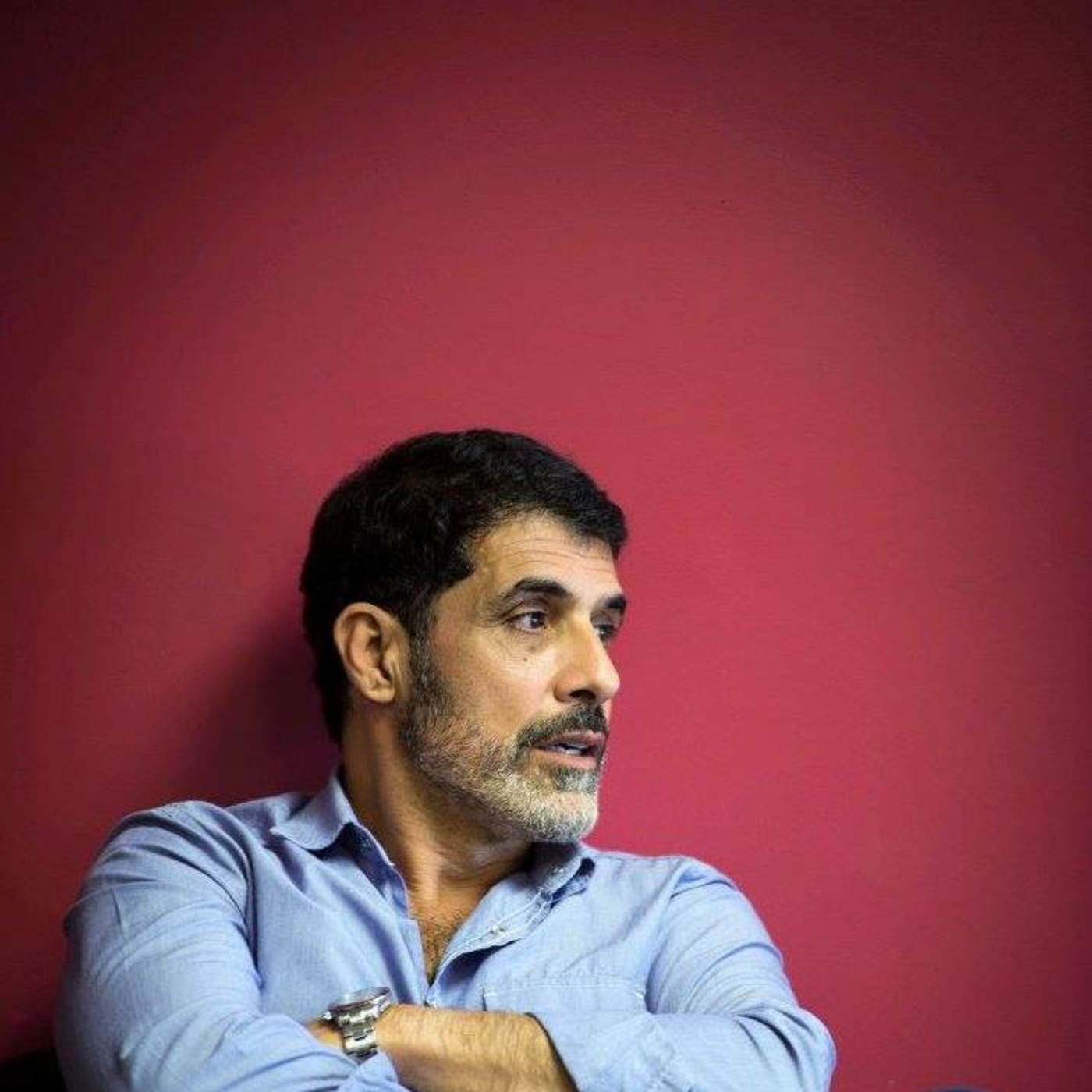
The Real Life Actor
Jeff Seymour
Audrey Helps Actors Podcast
Audrey Moore
Tipsy Casting
Jessica Sherman and Jenn Presser
Castability: The Podcast
The Castability App
Wendy Alane Wright's Secrets of a Hollywood Talent Manager Podcast
Wendy Alane Wright
Think Bigger Actors Podcast
DaJuan Johnson
ACTORS! YOU ARE ENOUGH!!
Amy Lyndon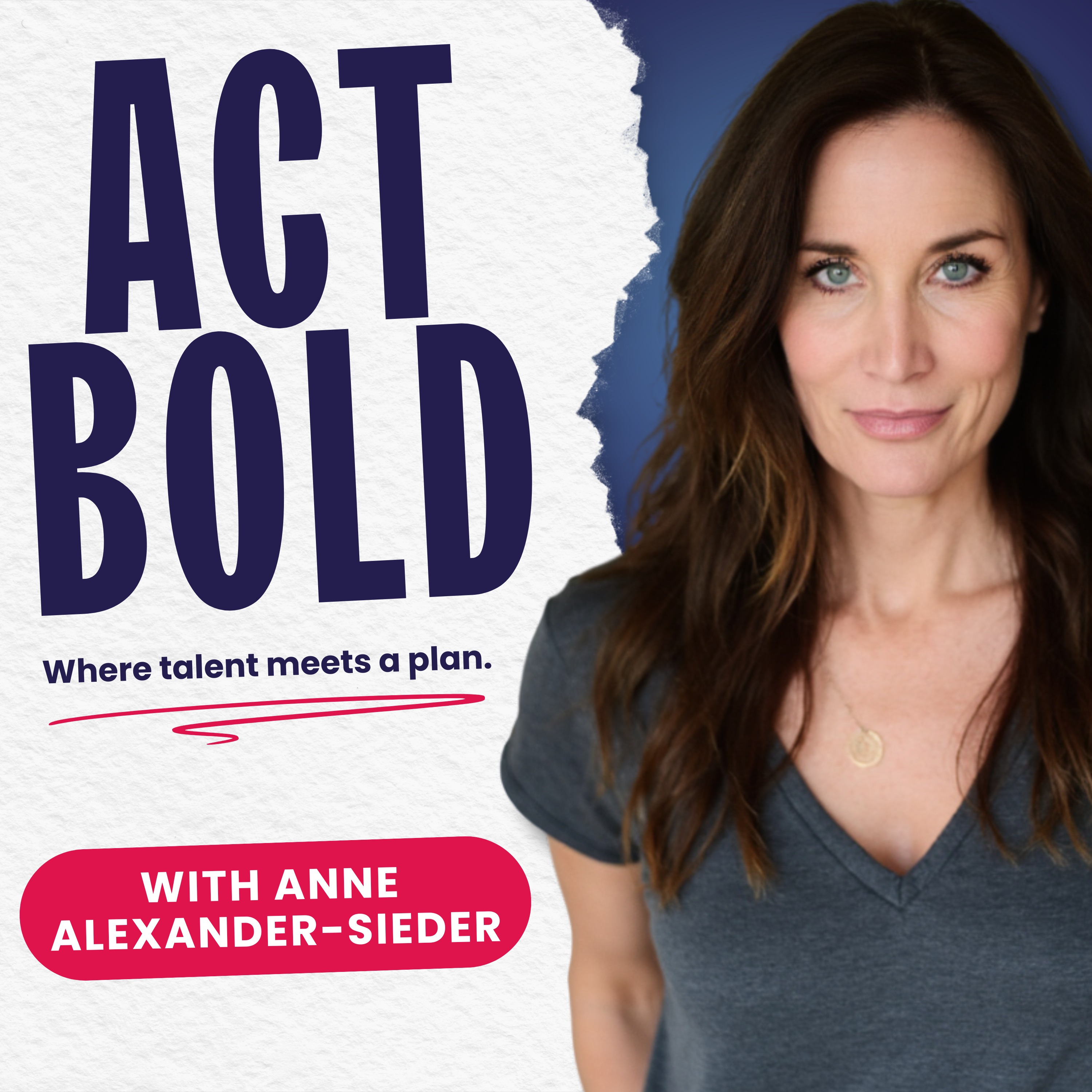
Act Bold - Where Talent Meets A Plan
Act Bold with Anne Alexander-Sieder
An Actor Survives
Emily McKnight
Podnews Weekly Review
James Cridland and Sam Sethi
Buzzcast
Buzzsprout
Box Angeles (for Actors)
Mike 'Box' Elder
Brian Breaks Character
Brian Patacca
Celebrity Catch Up: Life After That Thing I Did
Genevieve HassanCinema Australia
Cinema Australia
Don't Be So Dramatic
Rachel BakerEquity Foundation Podcast
Equity Foundation PodcastIn The Moment: Acting, Art and Life
Anthony MeindlIn the Envelope: The Actor’s Podcast
Backstage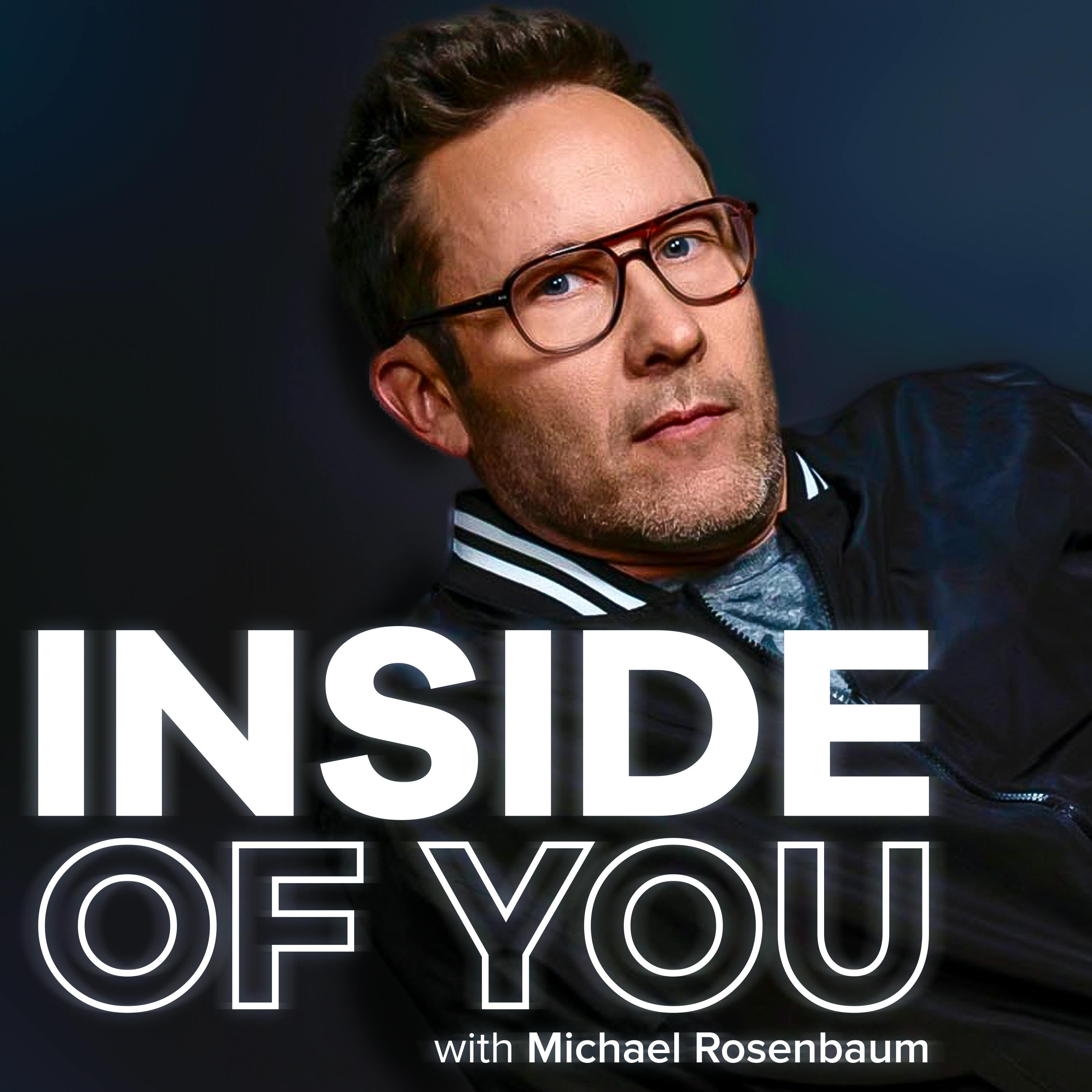
Inside of You with Michael Rosenbaum
Cumulus Podcast Network
Inspired by Nick Jones
Nick Jones
Killer Casting
Lisa Zambetti, Dean Laffan
Literally! With Rob Lowe
Stitcher & Team Coco, Rob Lowe
Need To Know
Bryce Zabel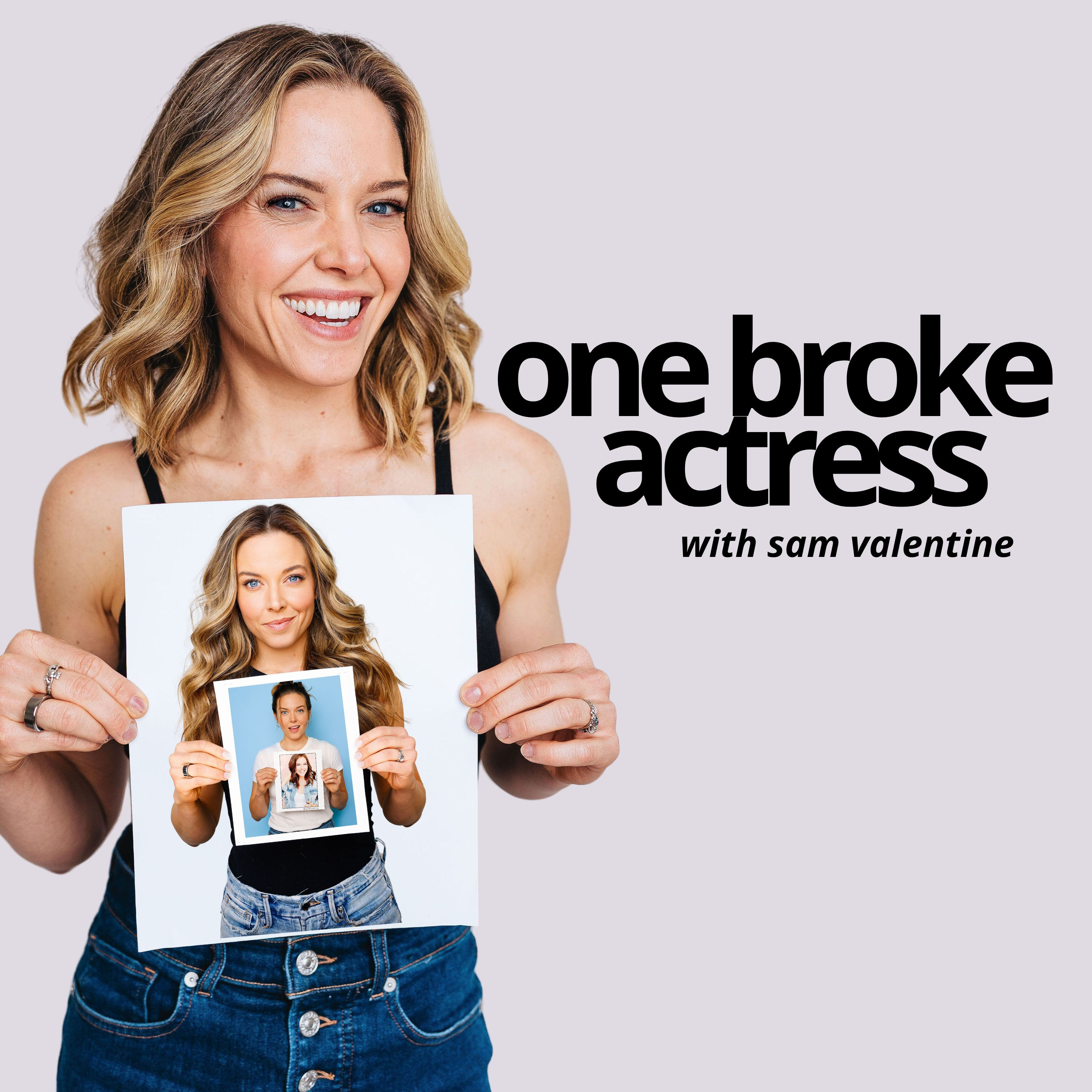
One Broke Actress
Sam Valentine
REAL ONES with Jon Bernthal
Jon Bernthal
SAG-AFTRA
SAG-AFTRA
SAG-AFTRA Foundation Conversations
SAG-AFTRA Foundation
Second Act Actors
Janet McMordie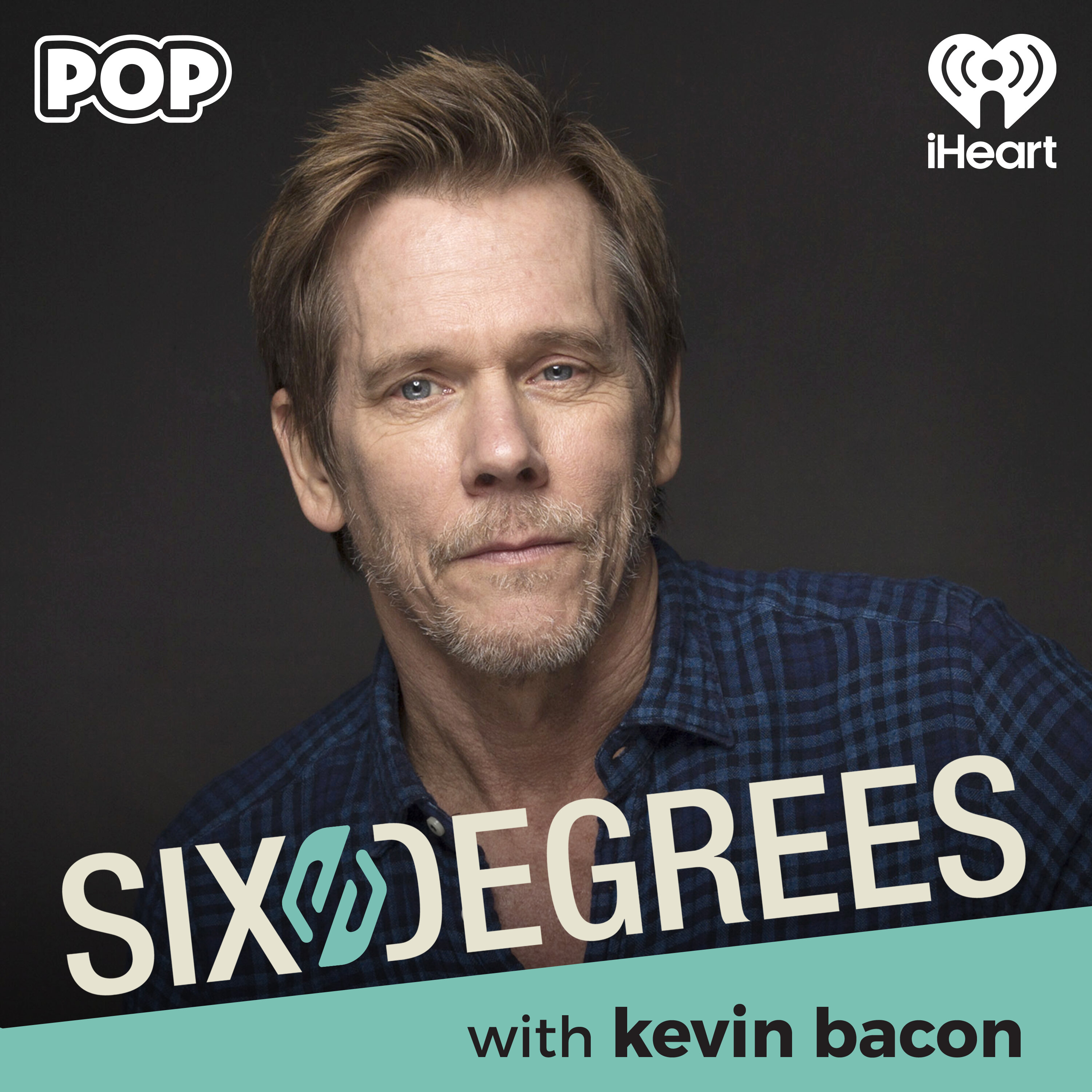
Six Degrees with Kevin Bacon
iHeartPodcasts and Warner Bros
SmartLess
Jason Bateman, Sean Hayes, Will Arnett
That One Audition with Alyshia Ochse
Alyshia Ochse
The 98%
Alexa Morden
The Acting Podcast from The BGB Studio
Risa Bramon Garcia and Steve Braun